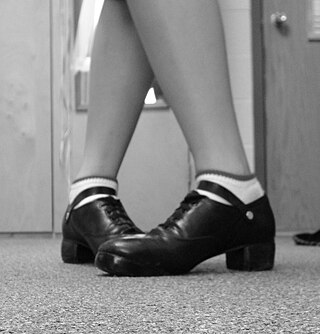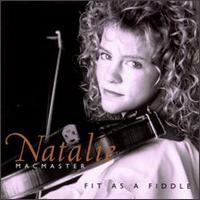
The Donegal fiddle tradition is one of the distinct fiddle traditions within Irish traditional music. The distinctness of the Donegal tradition developed due to the close relations between County Donegal and Scotland, and the Donegal repertoire and style has influences from Scottish fiddle music. For example, in addition to the ”universally known” standard Irish dance tunes, there is an added volume of Scottish and Nova Scotia tunes played, with even some tunes from Shetland and Orkney. This includes standard tune types such as double jigs, slip jigs, reels, and hornpipes. It has been claimed that Donegal musicians play more slip jigs than any other region of Ireland. This is potentially due to the geographical borders/mountains keeping Donegal's repertoire more locally-known for decades. There is also a prevalence of mazurka playing. Mazurkas are historically mainland-European tunes very similar to a waltz, in its 3
4 meter, though generally livelier and with more emphasis being placed on the second beat of each measure. Another uniquely Donegal tune is called the barndance, stemming from the Germanic schottische, also similar to the Norwegian reinlander. The barndance is very similar to a hornpipe, but slower than a reel; typically they are played with less of a hornpipe's “swing” and more of the “drive” of a reel.

The reel is a folk dance type as well as the accompanying dance tune type. Of Scottish origin, reels are also an important part of the repertoire of the fiddle traditions of Britain, Ireland and North America. In Scottish country dancing, the reel is one of the four traditional dances, the others being the jig, the strathspey and the waltz, and is also the name of a dance figure.

Scottish country dance (SCD) is the distinctively Scottish form of country dance, itself a form of social dance involving groups of couples of dancers tracing progressive patterns. A dance consists of a sequence of figures. These dances are set to musical forms which come from the Gaelic tradition of Highland Scotland, as do the steps used in performing the dances. Traditionally a figure corresponds to an eight-bar phrase of music.

A cèilidh or céilí is a traditional Scottish and Irish social gathering. In its most basic form, it simply means a social visit. In contemporary usage, it usually involves dancing and playing Gaelic folk music, either at a home or a larger concert at a social hall or other community gathering place.

The hornpipe is any of several dance forms played and danced in Britain and Ireland and elsewhere from the 16th century until the present day. The earliest references to hornpipes are from England, with Hugh Aston's Hornepype of 1522 and others referring to Lancashire hornpipes in 1609 and 1613.

Battlefield Band is a Scottish traditional music group. Founded in Glasgow in 1969, they have released over 30 albums and undergone many changes of lineup. As of 2010, none of the original founders remain in the band.
A strathspey is a type of dance tune in 4
4 time, featuring dotted rhythms, which in traditional playing are generally somewhat exaggerated rhythmically. Examples of strathspeys are the songs "The Bonnie Banks o' Loch Lomond" and "Coming Through the Rye".

Cape Breton fiddling is a regional violin style which falls within the Celtic music idiom. The more predominant style in Cape Breton Island's fiddle music was brought to North America by Scottish immigrants during the Highland Clearances. These Scottish immigrants were primarily from Gaelic-speaking regions in the Scottish Highlands and the Outer Hebrides. Although fiddling has changed considerably since this time in Scotland, it is widely held that the tradition of Scottish fiddle music has been better preserved in Cape Breton. While there is a similar tradition from the Irish-style fiddling, that style is largely overlooked as a result of the strong Scottish presence in the area.

Highland dance or Highland dancing is a style of competitive dancing developed in the Scottish Highlands in the 19th and 20th centuries, in the context of competitions at public events such as the Highland games. It was created from the Gaelic folk dance repertoire, but formalised with the conventions of ballet, and has been subject to influences from outside the Highlands. Highland dancing is often performed with the accompaniment of Highland bagpipe music, and dancers wear specialised shoes called ghillies or pumps. It is now seen at nearly every modern-day Highland games event.

Blackwater is the fifth studio album by Altan, released in April 1996 on the Virgin Records label. Three of the songs are sung in Irish. "Ar Bhruach Na Carraige Baine" is sung partly in English and in Irish. "Blackwaterside" is sung in English. It was the first album released by the band since the death of founding member Frankie Kennedy two years earlier. The final track on the album is a tribute to Kennedy and was written by Mairéad Ní Mhaonaigh herself.

Téada, an Irish band, plays traditional music. Téada is Irish for "strings". The five members of the band are fiddle player Oisín Mac Diarmada, button accordion player Paul Finn, Damien Stenson performs on flute, Seán Mc Elwain switches between the bouzouki and guitar and bodhrán player Tristan Rosenstock.
The Scots Trad Music Awards or Na Trads were founded in 2003 by Simon Thoumire to celebrate Scotland's traditional music in all its forms and create a high profile opportunity to bring the music and music industry into the spotlight of media and public attention. Nominations are made by the public and in 2019 over 100,000 public votes were expected across 18 categories.

Fit as a Fiddle is an album by Natalie MacMaster. It was reissued by Rounder Records in 1997.
Alasdair White is a Scottish folk musician born in 1983 on the Isle of Lewis, Outer Hebrides, Scotland. In 2001, when he was only 18 years old, he joined Battlefield Band as a virtuoso fiddle player.

Ceol Aduaidh is the first studio album by Frankie Kennedy and Mairéad Ní Mhaonaigh, originally released in 1983 on the Gael-Linn Records label. It was reissued in 1994 by Green Linnet Records and a remastered edition was issued in 2009 by Gael-Linn.
Gaelic music is an umbrella term for any music written in the Gaelic languages of Irish and Scottish Gaelic. To differentiate between the two, the Irish language is typically just referred to as "Irish", or sometimes as "Gaeilge" ; Scottish Gaelic is referred to as "Gàidhlig". Gaelic music is also classified under "Celtic music".

On the Fly is the ninth album by the Irish folk band Patrick Street, released in 2007 on Loftus Music.

Na Mooneys is the debut (eponymous) self-produced album from Irish folk music band Na Mooneys, released in October 2016.
Mac-Talla was a Scottish Gaelic "supergroup" formed in 1992 at the suggestion of record label owner Robin Morton. Morton credited the individual band members as some of those responsible for bringing Gaelic music to wider public attention.














